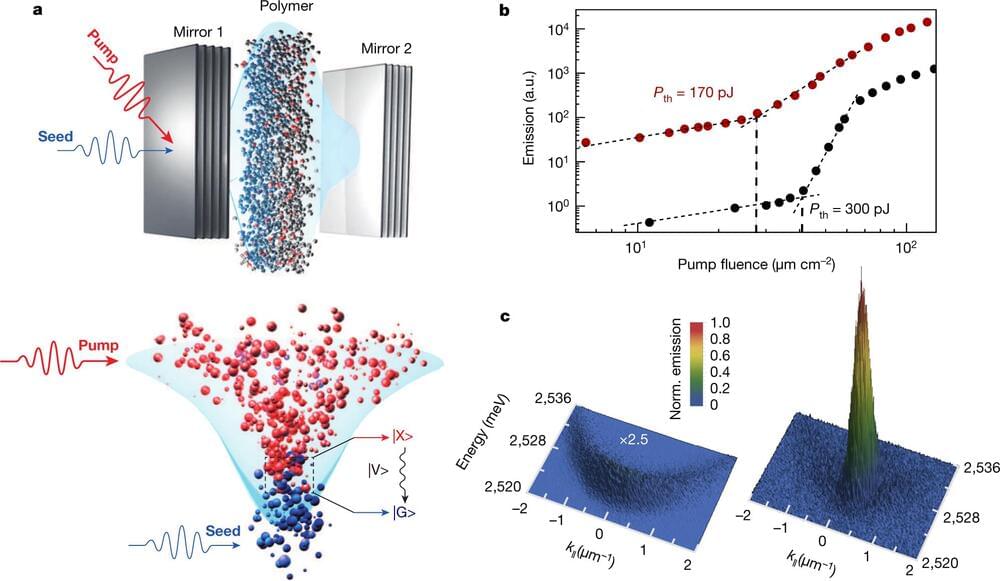Nonlinearity induced by a single photon is desirable because it can drive power consumption of optical devices to their fundamental quantum limit, and is demonstrated here at room temperature.
The recent progress in nanotechnology1,2 and single-molecule spectroscopy3–5 paves the way for emergent cost-effective organic quantum optical technologies with potential applications in useful devices operating at ambient conditions. We harness a π-conjugated ladder-type polymer strongly coupled to a microcavity forming hybrid light–matter states, so-called exciton-polaritons, to create exciton-polariton condensates with quantum fluid properties. Obeying Bose statistics, exciton-polaritons exhibit an extreme nonlinearity when undergoing bosonic stimulation6, which we have managed to trigger at the single-photon level, thereby providing an efficient way for all-optical ultrafast control over the macroscopic condensate wavefunction. Here, we utilize stable excitons dressed with high-energy molecular vibrations, allowing for single-photon nonlinear operation at ambient conditions.
